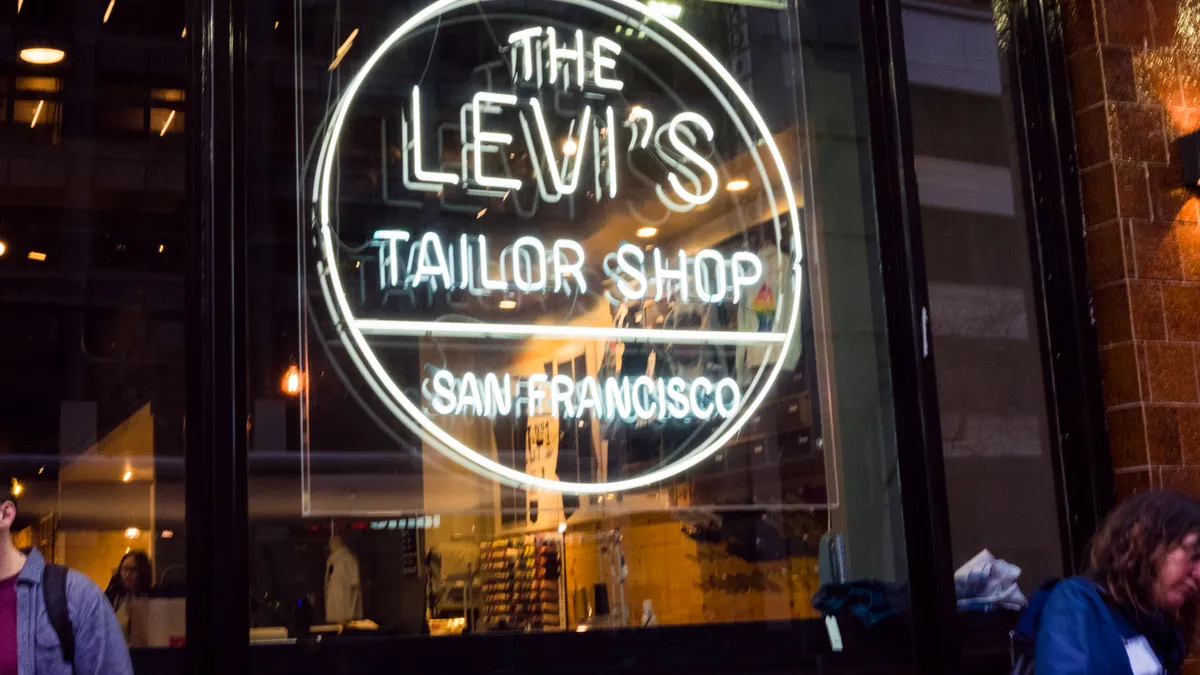NRF RETAIL CONVERGE — In a conversation about supply chain transformation at NRF Retail Converge on Monday, Levi Strauss COO Liz O'Neill said a company goal is to have consumers wear its products for longer.
"We want to try to communicate to consumers that our products are sort of the antithesis of fast fashion. They're not throwaway products, you can wear them for a very long time," O'Neill said.
O'Neill said part of the retailer's focus is to educate consumers on how to recycle its products or leverage the company's tailor shops to mend or personalize items.
"Sustainability is not just the right thing to do. It's good business," O'Neill said. The retailer is continuing to push forward with its efforts through its first sustainability report to be released in the fourth quarter. It will allow the company and others to track its progress, increase transparency, and allow Levi's to show its impact by measuring its programs over time, according to O'Neill.
"We do make them better," O'Neill said about the durability of Levi's products and how the company wants to build loyalty in order to pull back on overconsumption.
That same sentiment was recently explored by the retailer's chief sustainability officer, Jeff Hogue, in a blog post about conscious consumption where he points to how nearly 100 billion pieces of apparel are made each year. Hogue references Levi's recent Buy Better, Wear Longer campaign which delves into the subject of overproduction and overconsumption "to deliver a call to action for ourselves, our consumers and our industry to be more intentional about how we design, make, sell and buy clothes."
O'Neill said that the company also has goals against carbon emissions, including a 40% reduction in emissions within its supply chain. "Because we work with third party suppliers, that requires us to work with those suppliers to ensure that they are on the same page as us. And that they have the support that they need to implement those programs that will help them operate more sustainably."
O'Neill became the chief operations officer last fall, when Levi's announced a series of executive changes as part of the brand's effort to focus on direct to consumer and digital transformation. A year ago the company had to eliminate around 700 global, non-retail and non-manufacturing jobs, or 15% of that workforce, due to the impact of the pandemic.















